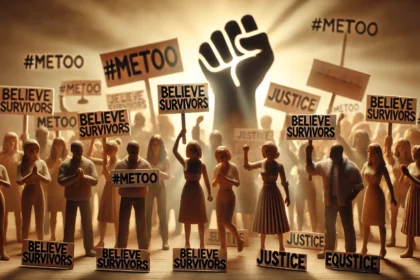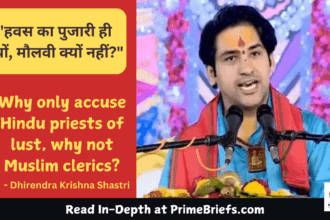Introduction:
Jani Master, a celebrated choreographer renowned for his work in major Indian films like “Baahubali” and “Pushpa: The Rise,” has recently come under scrutiny following allegations of sexual assault by a 21-year-old assistant choreographer. The accusations, which date back to incidents beginning in 2019, have sparked intense discussions within the South Indian film industry and beyond. This article details the allegations, the ongoing investigation, and the wider implications of the case.
The Allegations:
The 21-year-old woman, who is also a choreographer from Narsingi, Telangana, has accused Jani Master of sexual assault. According to her complaint, the alleged incidents began in 2019 when she was still a minor. The complainant claims she first met Jani Master in 2017 during an event and was later offered a job by him two years after their initial meeting. Since then, she alleges that multiple assaults occurred, including one incident at a hotel where Jani Master was staying with her and two male dancers.
The victim has also accused Jani Master of threatening her to prevent her from going to the authorities. She has reported facing mental harassment and torture during rehearsals and photoshoots, adding another layer to the seriousness of the accusations. These allegations have been filed under various sections of the Indian Penal Code (IPC), including rape and criminal intimidation, as well as under the Protection of Children from Sexual Offences (POCSO) Act. The inclusion of the POCSO Act indicates the severity of the charges, as this legislation is specifically designed to protect minors from sexual offenses.
Arrest and Legal Proceedings:
Jani Master was arrested at a hotel in Goa, bringing the choreographer’s illustrious career to a sudden halt. The allegations have not only brought him under the scanner of law enforcement agencies but have also raised critical questions about the working conditions and safety of women in the entertainment industry. His arrest came as a shock to many in the film industry, where he is a respected figure known for his significant contributions to choreography in Indian cinema.
As the legal proceedings unfold, all eyes are on how the justice system handles this high-profile case. The case’s outcome will be closely watched, as it may set a precedent for how similar allegations are managed in the entertainment industry, where power dynamics can often lead to such abuses going unreported or unaddressed.
Industry Response:
In the wake of the allegations, the Telugu Film Chamber of Commerce has taken decisive action by suspending Jani Master. He has also been distanced from his ongoing film projects, signaling a zero-tolerance approach toward sexual harassment within the industry. This incident has reignited the conversation around sexual harassment in the Telugu film industry, emphasizing the need for a safer working environment for women and more stringent measures to address misconduct.
Furthermore, the Telangana Women’s Commission has intervened, issuing orders for police protection to be provided to the complainant. The commission has also highlighted the importance of implementing the Prevention of Sexual Harassment (POSH) Act across all workplaces in the entertainment sector. They stress that this is essential to safeguard the rights and safety of women in the industry, ensuring they can work in a harassment-free environment.
The Broader Context: The #MeToo Movement in Indian Cinema:
The allegations against Jani Master have surfaced amidst the ongoing #MeToo movement in India, which has seen numerous women in the entertainment industry come forward with their experiences of sexual harassment and assault. The South Indian film industry, in particular, has been in the spotlight for its handling of such cases, with several high-profile allegations bringing attention to the industry’s darker side.
The case of Jani Master has renewed calls for establishing a separate government body dedicated to handling complaints of sexual harassment in the entertainment industry. Advocates argue that this is essential to ensure that victims have a safe and reliable platform to report abuse without fear of retaliation or victim-blaming. Such a body would also serve to create a more transparent process for handling complaints, ensuring that allegations are investigated thoroughly and fairly.
The #MeToo movement in India has already led to some positive changes, including increased awareness and dialogue about sexual harassment. However, cases like Jani Master’s highlight that more systemic changes are needed to protect individuals working in the film industry. This includes better implementation of existing laws, such as the POSH Act, and the establishment of independent oversight bodies that can handle complaints with the seriousness they deserve.

Public Reactions and Social Media:
The public and social media response to the allegations has been divided. While many have expressed their support for the victim and called for a thorough investigation, others have raised concerns about the due process and the impact of such accusations on the accused’s career. This case has once again highlighted the complexity of addressing sexual harassment allegations in the public eye, where social media can both amplify support for victims and fuel controversy.
On social media platforms like Twitter and Instagram, hashtags related to Jani Master and the #MeToo movement have been trending. Supporters of the movement have emphasized the importance of believing survivors and providing them with a platform to share their stories. However, there is also a section of the public calling for caution, emphasizing the principle of “innocent until proven guilty” and the need for a fair legal process.
This polarization reflects a broader societal debate about how to handle allegations of sexual harassment, particularly in cases involving high-profile individuals. It underscores the need for a balanced approach that ensures the rights and safety of victims while also preserving the integrity of the legal process.
Legal and Ethical Implications:
The accusations against Jani Master raise several legal and ethical questions. From a legal standpoint, the case will be closely watched to see how the evidence is presented and how the justice system handles high-profile allegations. The involvement of the POCSO Act indicates the severity of the charges, as this legislation is designed to protect minors from sexual offenses.
Ethically, the entertainment industry faces a significant challenge in addressing power dynamics and ensuring a safe work environment. The case underscores the necessity for more robust mechanisms, such as internal complaints committees and support systems, to protect individuals from harassment and abuse. It also highlights the need for accountability at all levels of the industry, from production houses to industry associations, in fostering a culture of safety and respect.
The entertainment industry, particularly in India, has long been criticized for its lack of safeguards against harassment and exploitation. Many individuals, especially those at the beginning of their careers, often find themselves in vulnerable positions, with little recourse if they experience abuse. The Jani Master case brings these issues to the forefront, calling for systemic changes that go beyond addressing individual instances of misconduct.

The Need for Industry Reform:
This incident has underscored the urgent need for reforms within the entertainment industry, particularly in the South Indian film sector. Calls for implementing the Prevention of Sexual Harassment (POSH) Act in all film sets, studios, and production houses have gained momentum. Industry stakeholders, including producers, directors, and actors, are being urged to take a more proactive role in creating a safer environment for all.
Additionally, the need for a government-backed body to address and monitor cases of harassment in the industry has been a key demand from activists and advocacy groups. Such a body would not only provide a formal channel for reporting and investigating complaints but also help educate industry professionals about their rights and responsibilities concerning workplace conduct.
Conclusion:
The allegations against Jani Master have once again shone a light on the pervasive issue of sexual harassment in the entertainment industry. While the legal proceedings will determine the outcome of this particular case, the broader conversation around the safety and rights of individuals in the film industry continues. The response from industry bodies, legal authorities, and the public will play a crucial role in shaping future policies and protections for those working in the entertainment sector.









